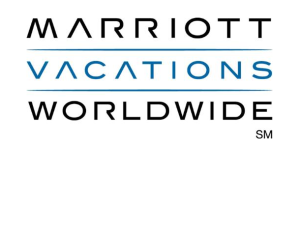Australia Timeshare Industry Blossoms Into Healthy Adolescence
Monday, February 20, 2006
New legislation helps safeguard consumers, but there’s still cause for consumers to be vigilant.
An article published this past Saturday in the online version of The Australian (http://www.theaustralian.news.com.au/common/story_page/0,5744,18145220%255E25658,00.html) has many good things to say about the state of timeshares in Australia. While I personally am very pleased to see such optimism reflected in the pages of a major online periodical, I do have some constructive criticism to voice.
New legislation forbids Australia’s timeshare salespeople from advertising timeshare as a financial investment. This is great news! More and more countries around the world are implementing similar policies, which have been gratefully received by the timesharing public. If you’ve been reading this blog, you know that a timeshare’s monetary value almost always depreciates, and timeshares should not be considered a sound financial investment because of the likelihood of such depreciation.
This legislation has improved consumer confidence in the product of timeshare, and the Australia timeshare business is booming as a direct result. Again, this is good news. Australia is a wonderful place to visit (here’s a tip: September to December is a great time to go scuba diving around the Great Barrier Reef), whether for a week or an extended stay. The people are wonderful, the scenery is spectacular, and I’ve noticed that children in particular are especially intrigued by Australia’s wildlife (especially koalas).
However, reading between the lines of this article, I find that a certain amount of foreshadowing becomes evident. As with any healthy industry, it is only a matter of time before the lure of easy money convinces some timeshare salespeople to abandon their scruples.
The article mentions that direct marketing is increasingly becoming the most popular method of attracting new timeshare buyers in Australia. This concerns me because many of the complaints we’ve heard about timeshares have to do with how a timeshare property is marketed.
I feel that a timeshare property should rely on its own qualities to sell itself, rather than sales hype. Hopefully most would agree that our company’s business model reflects this attitude. A lot of timeshare buyers have been led to sign less-than-agreeable contracts after being wined and dined, subjected to free gifts, treated to elaborate and lengthy sales presentations, or subjected to other inducements.
In areas with a longer history of timeshare development, hype and high pressure are falling rapidly from favor. In areas like the United States, consumers are becoming more aware about the product of timeshare and how it is marketed, and fewer of these folks are likely to buy a timeshare because of marketing hype. However, in other parts of the world, timeshare sales practices exist which may differ startlingly from an American’s idea of “business as usual”.
Maybe I am overly skeptical of direct marketing as it applies to timeshare, but I have good reason: I am involved with the resale sector. If you’re a timeshare owner, and you receive an unsolicited phone call from someone claiming to be a timeshare reseller, use extreme caution. If you smell a rat, hang up the phone if you need to. The person on the other end has probably obtained your personal information from someone selling lists of known timeshare owners. If you want to buy, sell or rent timeshare, don’t wait for a stranger to cold-call you! Contact a reputable timeshare-by-owner company or a licensed timeshare broker.
It has always been my belief that people should buy a timeshare because it fits well with their lifestyles and vacation goals – NOT because of free toasters.
It is my sincerest wish and hope that owners of Australia timeshare properties will enjoy a lifetime of amazing vacations. By saying no to timeshare hype, you have the power to make it happen.


